Resume Magic
Yale podcast/blog: https://admissio
Michigan’s application instructions: http
Princeton’s helpful tips: https://admissio
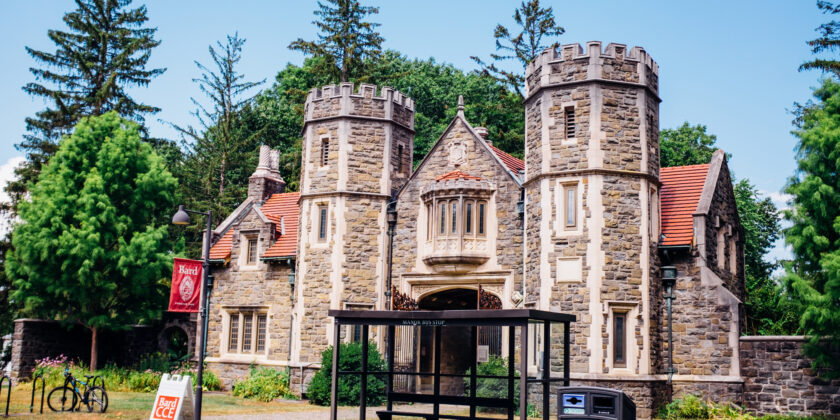
Yale podcast/blog: https://admissio
Michigan’s application instructions: http
Princeton’s helpful tips: https://admissio

What is NewMu Teens?
A five-month, after-school program that invites young people ages 15–19 to interact with contemporary art and culture with a focus on the intersections of gender, race, class, and sexual orientation. The program is free and participants receive a stipend of $500 in support of their participation.
What can teens expect from the program?
NewMu Teens connect with peers, guest artists, and their own creativity through workshops, artmaking, and discussion. Together, NewMu Teens develop and produce a culminating creative project to share with their communities.
Where will NewMu Teens meet?
While the Museum is closed to continue construction of our building expansion, NewMu Teens will meet in our temporary office spaces at 250 Bowery every Monday from 4–6pm, January 13 to May 26, 2025, excluding school recesses.
How do I apply?
Applications are DUE Sunday, November 17, 11:59pm. Learn more here.
*Stay in the know! Subscribe*
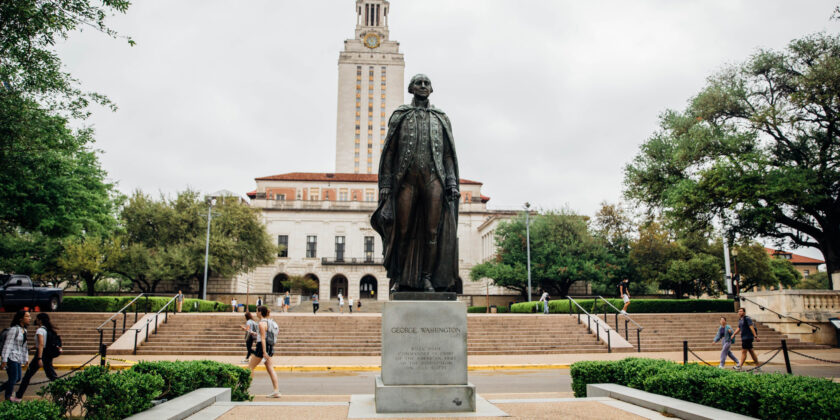
Don’t miss your chance to compete in the Wharton Global High School Investment Competition.
Important details, dates, as well as helpful resources and tools can be found here: https://globalyouth.wharton.
The competition is a free, English-based, experiential investment challenge for high school students and teachers that includes an online trading simulator. Participants compete with other students from around the world and learn about finance, teamwork, strategy building, analysis, communication, and the stock market.
*Stay in the know! Subscribe*
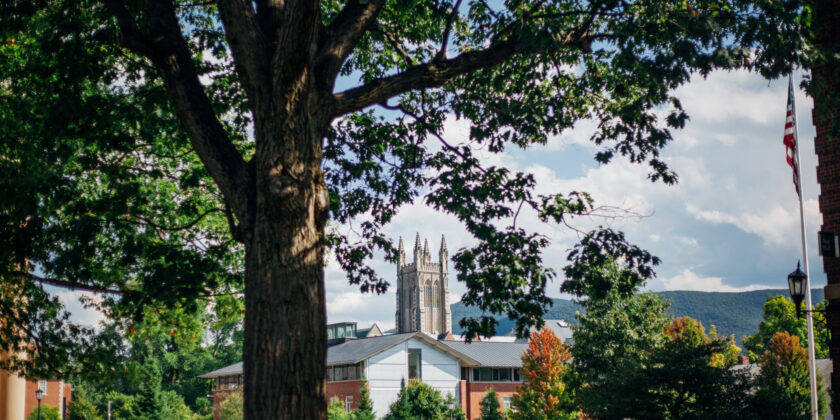
GenHERation is hosting programming throughout March to energize and inspire their community. Over 50 leaders from 20+ companies will join them for a variety of fireside chats, panels, and skill-building workshops.
These are great events for exploring careers in business, leadership learning, and so much more!
The link to join virtual sessions will be sent via email on the morning of the scheduled event. Registration for virtual opportunities closes one hour before the session start time.
All participants in the WHM series will be entered into a lottery to win a Fossil watch and a virtual mentoring session with a Fossil team member! Participants will receive an additional entry in the lottery for each session they attend. 5 additional participants will also be selected via lottery to join a virtual mentoring session with the Fossil team. The winners will be announced on Friday, March 31, 2023.
Head to GenHERation for more info!
*Stay in the know! Subscribe*
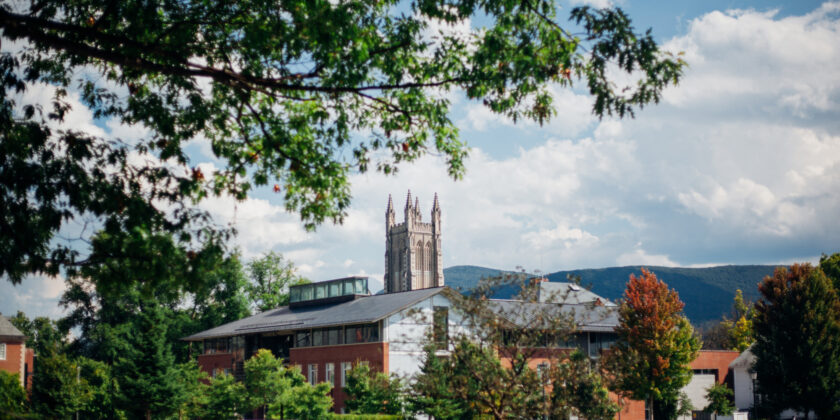
If you are a junior or sophomore and are looking to secure an internship it can help to get on LinkedIn. It’s one of the most convenient places to connect with potential employers, request informational interviews, and learn about the paths people have taken toward your dream role. There are many ways to get from high school to [insert dream role here]. It’s also faster than email in some cases!
It’s not hard to build a profile, and LinkedIn has published a guide just for high school students. You can access it here.
Some colleges also have a spot on their application to add a profile link; often, the more you can share about your interests, accomplishments, and goals, the better!
*Stay in the know! Subscribe*
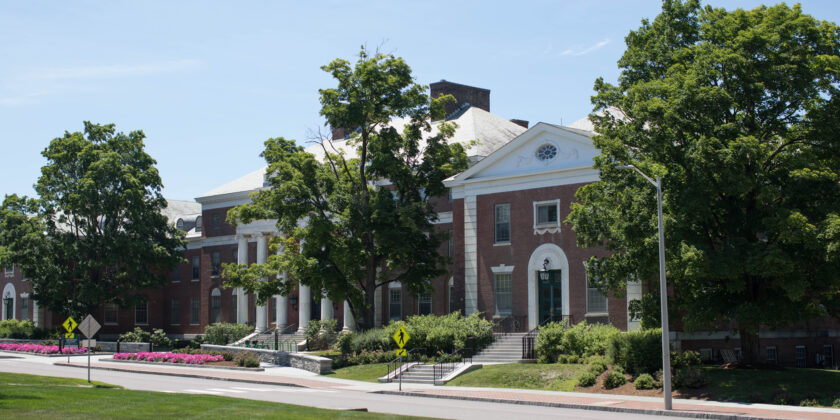
Summer is the perfect time to explore your academic interests. As part of your college application, activities that help demonstrate your intellectual curiosity and commitment to an area of study (typically, the one(s) you might pursue in college) are extremely beneficial.
The following programs are some of our favorites for students interested in government, politics, law and IR.
Volunteer/Internship Opportunities:
The Benjamin Franklin Transatlantic Fellowship fosters relationships among the younger generation of Europeans and Americans to build strong linkages and an awareness of shared values. The Fellowship engages 45 teenagers from Europe and ten American teenagers (ages 16 – 18) in a four-week U.S.-based exchange program that aims to reinforce the transatlantic relationship. During the Fellowship, participants will explore transatlantic relations, leadership development, critical thinking, diplomacy, community activism, and the media in order to unite young adults around common goals, using the legacy of Benjamin Franklin as a framework. American youth are eligible to participate in the fellowship, but do not travel abroad. This fellowship is funded.
The United Nations Association of Greater Boston’s Summer Institute in Global Leadership offers week-long Model UN programs for students from all over the world to work together and address global issues. Learn about global issues, build skills for life and leadership, and collaborate with students from across the world during our week-long Model UN programs! In-person and virtual options.
The New York University High School Law Institute (HSLI is an Academic Year Program*) is a student-run organization that serves talented and motivated high school students throughout New York City. Alongside a sister program at Columbia Law School, they offer free, yearlong academic programming in constitutional law, criminal law, and speech and debate on Saturdays from 10 AM to 1 PM. Ideal HSLI students are those who recognize the impact of the legal system, wish to learn more about how it concretely impacts society, and are preparing themselves to serve and advocate for others.
The U.S. Department of State’s National Security Language Initiative for Youth (NSLI-Y) program provides critical language study overseas for U.S. high school students through full scholarships to participate in intensive summer and academic year programs. Participants study one of the eight NSLI-Y languages while immersed in the culture and day-to-day life of the host country. NSLI-Y is part of the National Security Language Initiative, a multi-agency U.S. government initiative launched in 2006 to improve Americans’ ability to engage with people from around the world. NSLI-Y plays an important role in preparing U.S. students for the 21st century’s globalized workforce and contributes to national security. NSLI-Y participants serve as citizen ambassadors, representing the diversity of the United States abroad and building lasting relationships with people in their host countries. If you have a passion for learning languages and want to immerse yourself in a foreign culture, this program may be for you! No previous language skills are required. NSLI-Y languages: Arabic, Chinese (Mandarin), Hindi, Indonesian, Korean, Persian (Tajiki), Russian, Turkish.
Onero Institute Virtual Teams. The Onero Institute produces high-level content on international affairs topics in new and creative ways. They develop projects specially designed for social media platforms to better engage young people on global issues and to bring credible content to an increasingly important space. Join the Virtual Engagement Team to take part in this unique area of today’s international discourse. If you would like to join but need more experience developing such projects, participate in the Virtual Engagement Program (VEP) to build up your skills in graphic design, concise writing, teamwork, and research.
The Edward M. Kennedy Institute for the United States Senate is dedicated to educating the public about the important role of the Senate in our government, encouraging participatory democracy, invigorating civil discourse, and inspiring the next generation of citizens and leaders to engage in the civic life of their communities. They offer ongoing volunteer roles and “internships” where students can help enhance the visitor experience and communicate the Institute’s mission.
Contact your senator’s office for more information on applying to be a Senate Page.
For Rising 9th Graders
The Summer Law Institute (SLI) is a five-week, summer law program for students who have just completed their eighth grade school year. The Summer Law Institute pushes rising ninth graders to see themselves as young professionals-in-training. The program exposes them to positive and successful role models, involves them in professional activities, and places them on a path that can lead to the fulfillment of their dreams. Students who complete the SLI are eligible to apply to our 4-year College Bound program.
*Stay in the know! Subscribe*

As part of your college application, extracurricular activities—including those over the summer— help demonstrate your intellectual curiosity and commitment to an area of study (typically, the one you might pursue in college).
But “programs” are not the only way to explore academic interests. You can join clubs at your school or locally, take free online classes via edX and Coursera, shadow, or intern (aka volunteer for most students)—there are tons of options ranging from super formal (and pricey) to those as simple as reading in your free time.
The following programs are some of our favorites for students interested in exploring social justice and activism.
Pen American Free Speech Advocacy Institute (Spring too!!!). PEN America’s Free Speech Advocacy Institute is a 15-week online education and training program that will provide students with a foundational understanding of free expression as a civil right and an ongoing contemporary topic of social and political conversation. Students will be introduced to a broad range of issues related to free expression at both the domestic and international levels, covering the First Amendment and free expression limitations established by the Supreme Court, as well as the history of free expression as a human right, and other modern issues related to the Internet, protest, political dissent, hate, and freedom of the press.
The ACLU National Advocacy Institute’s High School Program will convene a virtual gathering of high school students (ages 15-18) from across the United States to participate in a week-long learning experience for the next generation of social justice advocates.
The NYCLU has prioritized youth activism for more than 20 years. They work with youth organizers across New York State to ensure that young people know their rights, know how to access those rights and learn how to effectively organize around civil rights and civil liberties in their schools and communities. They are eager to organize alongside youth activists, educators and parents alike to effect change in New York. Check out these projects: Teen Activist Project & Student Ambassadors.
FFAC National High School Mentorship. Are you a high school student interested in working to create a more just and sustainable food system? Are you looking for a deeper understanding of social issues and your place as an advocate in the movement? Would you like to be part of a supportive community of like-minded changemakers? If so, consider applying to Factory Farming Awareness Coalition’s Student Advocates program.
Religious Action Center Teen Justice Fellowship. RAC teen fellowship programs are learning intensives in community organizing, designed to equip our youth leaders with the skills to create change in their home communities. Through fellowships, high schoolers connect with other social justice leaders from across the country and learn lifelong skills applicable to any issue they are passionate about. The fellowships value experiential learning, moving beyond theory and Zoom trainings into action. Each fellowship culminates in teens designing and implementing a project in their home communities. As a fellow, you’ll learn community organizing skills, explore your own identity and what your sources of privilege and oppression are, the roots of voter suppression in America, skills to register voters, and complete a civic engagement project in your home community. You get to learn, decide how you want to make an impact, and be the leader that makes it happen.
*Stay in the know! Subscribe*
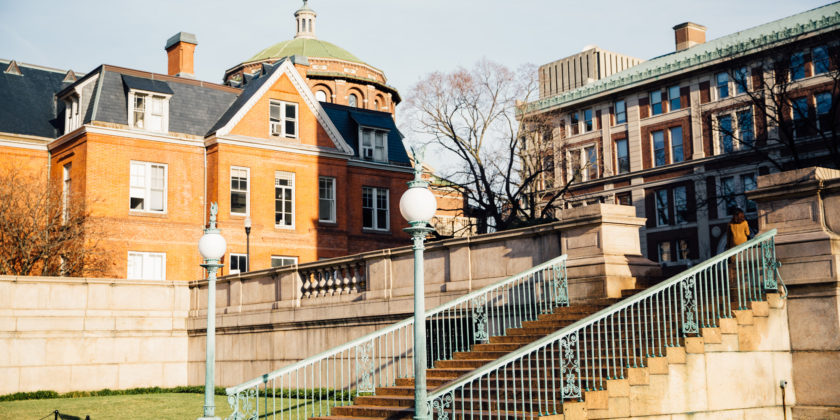
As part of your college application, extracurricular activities—including those over the summer— help demonstrate your intellectual curiosity and commitment to an area of study (typically, the one you might pursue in college). The following programs are some of our favorites for students interested in math.
Please keep in mind that “programs” are not the only way to explore academic interests. In fact, many colleges like to see students go beyond canned programming (ask us about this directly). You can join clubs at your school or locally, take free online classes via edX and Coursera, shadow or intern (aka volunteer for most students), or work with a teacher at your school to develop an independent study—there are tons of options ranging from super formal (and pricey) to those as simple as reading in your free time. They all “work” to build your academic narrative and explore your area(s) of interest.
*Stay in the know! Subscribe*

Making Caring Common’s Youth Advisory Board is a diverse group of high school students from across the country who are committed to making schools more caring and respectful places through everyday interactions. Members guide our understanding of and help devise solutions to the most pressing moral issues and social challenges of their peer groups, such as bullying and exclusion. They provide feedback on our ideas, share their thoughts on current events, and make sure we’re on the right track when communicating information to young people.
We are looking for young people with the following characteristics:
We are particularly interested in including young people who are not typically identified as leaders in their schools, those who may be socially marginalized, and those who represent minority groups within their school community.
The deadline to apply is October 4, and you can submit your application here.
*Stay in the know! Subscribe*
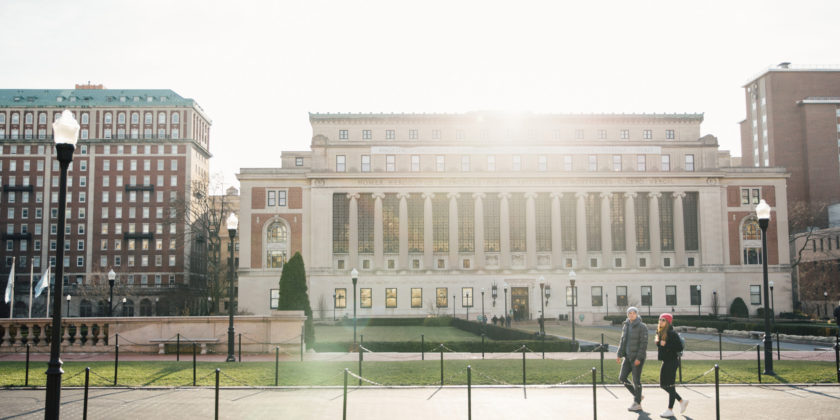
As part of your college application, extracurricular activities—including those over the summer— help demonstrate your intellectual curiosity and commitment to an area of study (typically, the one you might pursue in college). Some programs, however, are not purely academic, like those geared toward leadership development. The following programs are some of our favorites for students interested in developing their leadership skills (and so much more!).
Please keep in mind that “programs” are not the only way to explore academic interests. In fact, many colleges like to see students go beyond canned programming (ask us about this directly). You can join clubs at your school or locally, take free online classes via edX and Coursera, shadow, or intern (aka volunteer for most students)—there are tons of options ranging from super formal (and pricey) to those as simple as reading in your free time.
Bank of America Student Leaders Program
Student Leaders participate in an eight-week paid internship at a local nonprofit organization where you learn first-hand about the needs of the community and the critical role nonprofits play. In addition, you will learn valuable civic, social and business leadership skills. Each Student Leader will attend the Student Leaders Summit held in Washington, D.C. where you will learn how government, business and the nonprofit sector work together to address critical community needs. Note: in-person events will be in line with local and national guidelines around gatherings and travel and may be subject to change.
The LEAP Young Adult Leadership Program
LEAP Week is a highly-immersive week-long leadership program for high school and college students held annually at the UCLA campus in Los Angeles, California. Each year, 400 students from around the globe travel to attend LEAP Week, a full week dedicated to helping young adults uncover the “real-life” skills needed to achieve great success. Another major focus of LEAPweek is developing young adults’ networking skills. Especially in this modern age of social media, most teens already have strong networking capabilities, they just need some guidance to maximize these abilities. Networking will be tremendously important when you begin your career, and it also helps develop lasting friendships in every phase of life.
Notre Dame Leadership Seminars
Leadership Seminars is for current high school juniors who are academically gifted leaders in their school, church, local community, or other social organizations. Students participate in one of three seminars (sample topic: Global Issues: Violence and Peace in the Modern Age). Around 90 students are admitted each year—usually ranking in the top 10 percent of their class—and are eligible to receive one college credit.
Annual Camp Pride Summer Leadership Academy
Camp Pride is the premiere national training program for social justice and grassroots activism for LGBTQ and ally young adults on college campuses.
*Stay in the know! Subscribe*